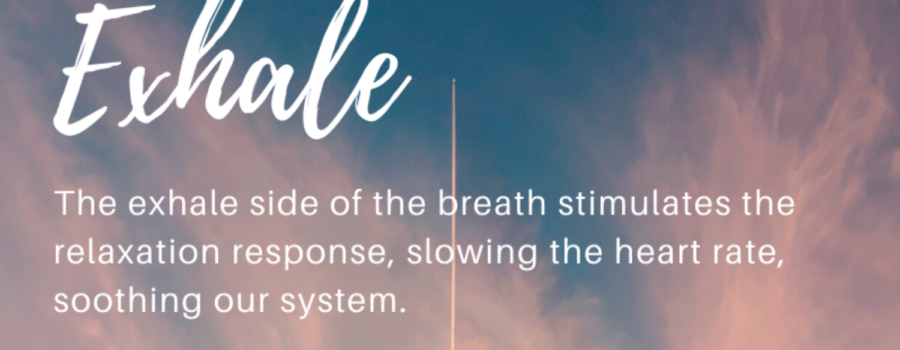By Kira Wiggins, Marriage and Family Therapist Trainee
I would like to stay informed of what’s happening outside the walls of the fortress I call home throughout this global crisis. But every time I turn on the television, I’m inundated with images of unimaginable suffering and messages of uncertainty. I endure the fear, empathy, and compassion overwhelming my heart by letting it spill out through tears that slide helplessly down my cheeks.
The fact that we have little or no control of the situation and may be in imminent danger is the very definition of stress. Many of us are also feeling the pressure to produce or provide things we aren’t sure we will be able to deliver, such as rent money, groceries, or sufficient care for our children. This is the second definition of stress. No question, THESE ARE STRESSFUL TIMES. Not only are we dealing with our individual pressures but, whether we realize it or not, we are also absorbing the collective stress surrounding us.
The effects of stress
We can all relate to the uncomfortable feeling stress creates in our bodies and our minds. Some lean toward emotional reactivity, some toward anxiety, while others turn their stress into anger and irritability. These inconvenient mood shifts are simply manifestations of a cluster of events occurring internally. Stress is a very efficient, adaptive response to a threat such as being chased by a bear. If a grizzly is in hot pursuit of me, I need instant energy and strength so I can run and climb a tree or hop a fence to get away. This is definitely not the time for my system to put its energy into digesting or reproducing.
Unfortunately, our bodies are unable to distinguish this type of danger versus the psycho-emotional strain we are experiencing today. It responds in exactly the same way, creating changes in the following systems:
- Cardiovascular
- Digestion/appetite regulation
- Blood sugar regulation
- Adrenal and thyroid functioning
- Blood pressure regulation
- Immune system Impairment
- Behavior activation
- Sleep disturbance
Stress Management
The last thing we want to do is create stress about our stress, so let’s move our attention away from the effects of stress to ways of managing it. Have you ever noticed how two people can survive the same harrowing experience and one comes out shaken but able to move on and the other becomes paralyzed with fear and anxiety? This is due to each person’s level of resiliency.
Basically, the person recovering more easily has built up a belief in their ability to manage their stress and has tools for promoting their own health. This phenomenon assures us it is possible to create calm in the midst of a storm. Research has shown that following a few simple, daily practices can alleviate much of the tension building up inside of us. The focus of this series will now turn to providing tips for staying healthy through these challenging times.
Breath
The stress response is regulated by our autonomic nervous system (the part of our nervous system that happens without our conscious control). There are two sides to this system – one promotes the stress reaction (fight, flight, or freeze) the other stimulates the relaxation response (rest, digest, reproduce). The breath is the one tool we have under our conscious control to regulate this system. This happens in two ways:
Exhalation
The exhale side of the breath stimulates the relaxation response, slowing the heart rate down. The inhale side of the breath stimulates the stress reaction, increasing the heart rate.
Extended Exhale Practice:
- Inhale for a count of 4-6
- Exhale for a count of 6-8
- Before taking the next inhale, hold the exhale out (empty lungs) for a count of 2-4
- Repeat 5-10 times (1-2 minutes)
Deep breathing
The nerves controlling the stress reaction are concentrated in the upper lobes of the lungs. The nerves controlling the relaxation response are concentrated in the lower lobes of the lungs. This is why people tell us to “take a deep breath” when we get anxious. But if our deep breath remains concentrated in the chest, we are just further activating our stress reaction. In order to stimulate the relaxation response, we must push our breath down into the lower lobes of the lungs.
Belly Breath:
- Sit in a comfortable position with your spine long and tall or lie flat on your back
- Rest your hands on your belly/lower rib cage
- Inhale, pulling the breath deeper until you feel your hands being pushed by the changing shape of your lungs
- Exhale fully, feeling your hands lower
- Repeat 5-10 times (1-2 minutes)
Exercise
The stress reaction was designed to get your body ready for action. It does this by releasing a cascade of stress hormones into your system. If we are not being chased by a bear and just remain seated at our desk, these hormones do not get quickly metabolized and continue to float around in our system, which can be damaging over the long term. The best way to use up these hormones and blunt the stress reaction is to move our bodies. There are plenty of activities we can do around the house:
- Stream exercise classes on your television/computer
- Take a walk (keeping social distance)
- Turn up the music – Dance Party!
- Gardening
Journaling
Sometimes, our cares and worries just need to be given some space to exist and be acknowledged. Journaling is great for getting thoughts out of your head and lessening their intensity. Don’t worry about making sense – it doesn’t need to and it doesn’t ever need to be read again. Journaling is most effective as a daily practice but can be picked up any time your thoughts begin to race or become overwhelming.
Connect with trusted friends and loved ones online
One of the unique difficulties of our current situation is the relative isolation we are experiencing. Connecting with others is a strong mediator to our stress reaction. Without that connection, our issues seem to multiply.
We are fortunate to live in an era where technology allows us to spend face-to-face time with each other, even from a distance. Take advantage of this as much as possible. As you do, be careful your conversations do not turn to rumination about your shared difficulties. Venting frustrations as a part of your conversation can be healing whereas constant reinforcement of how bad things are only adds to your distress. Be sure your interactions are including positivity.
Take Mindful Moments
Mindfulness is a trendy idea right now, but what does it really mean and how does it apply to your life? Mindful living simply invites the idea of being present with what is happening in this very moment, not what happened five minutes ago, last week, last year, or what might happen tomorrow, next month, or in six months. We spend so much of our time ruminating over the past or fretting over the future we forget about today.
We all have legitimate concerns regarding repairs from past mistakes or plans to be made for a better future. Still, though, if we can sneak in a few moments throughout the day to look around and notice the roof over our heads, the sun shining, the flowers blooming, the child smiling, or the person next to us offering up their love and support, it softens the edges of sharper thoughts in our heads. The more time we spend here, the less overwhelming life becomes.
Gratitude Practice
Regardless of how dire circumstances might feel in any given moment, there is always something to be grateful for. Taking dedicated time each day to notice at least one thing you appreciate is an incredibly powerful tool to reduce stress and anxiety.
This might be as simple as your ability to breathe in and out or as large as having love in your life. Take a few minutes at the start or end of each day to write down what you’re grateful for. This can be a beautiful family practice where everyone puts their gratitude on a card or piece of paper and posts it around the house for all to see and appreciate.
Good Nutrition (I will put on my dietitian hat for this one!)
Nutrition and stress work on a two-way street. Stress depletes our nutritional stores while increasing harmful free radicals in our system. In turn, poor nutrition increases our internal stress and affects our psychological wellbeing. So, it’s plain to see that we need to both manage our stress and eat nutritiously. There are two categories of nutrients that are most important for stress management and psychological wellbeing:
Antioxidants found in:
- Fresh fruits and vegetables (the darker, richer the color, the better)
- Nuts and seeds
- Red and black beans
- Coffee and tea (adding milk will block the antioxidant effect)
B-vitamins found in:
- Seafood
- Organ meats
- Beef and poultry
- Leafy greens
- Eggs, milk, and yogurt
- Beans
Talk to a professional counselor or therapist
When we are subjected to high stress and/or traumatic situations, it can trigger us back to previous experiences of stress and unrepaired traumas we carry. All of a sudden, we find ourselves not only dealing with the issues at hand, but with issues from the past as well. This accumulation can lead to reduced resiliency and difficulty snapping back into full functioning.
A professional counselor or therapist is trained to help you recognize and work through this stress and trauma. Mental health services are considered as “essential” as medical care and remains available to you through this challenging time. Many therapists and counselors continue to offer either in-person or telehealth (video or phone) sessions.
Our team at the Ventura Counseling & Wellness Center is offering private telehealth appointments with our therapists and virtual groups. Get in touch with us to learn more.
Kira is a Marriage and Family Therapist Trainee at Ventura Counseling and Wellness Center and West Valley Counseling Center. She combines her background as a registered dietitian and yoga therapist to her counseling for a holistic approach to your health and wellbeing.





